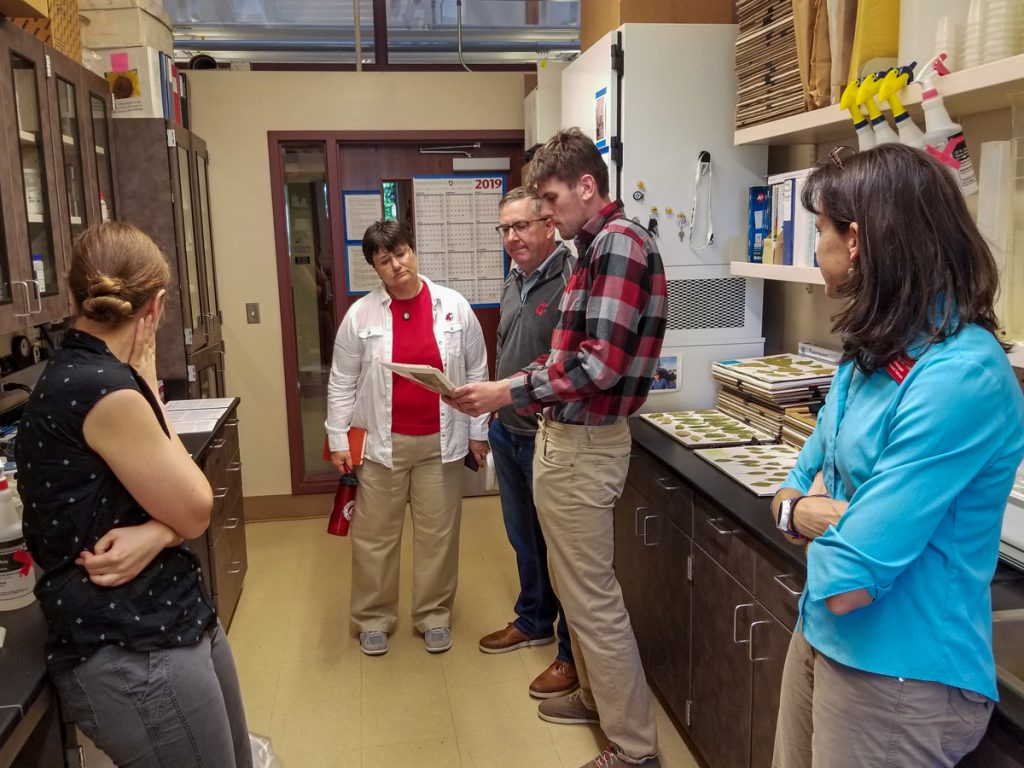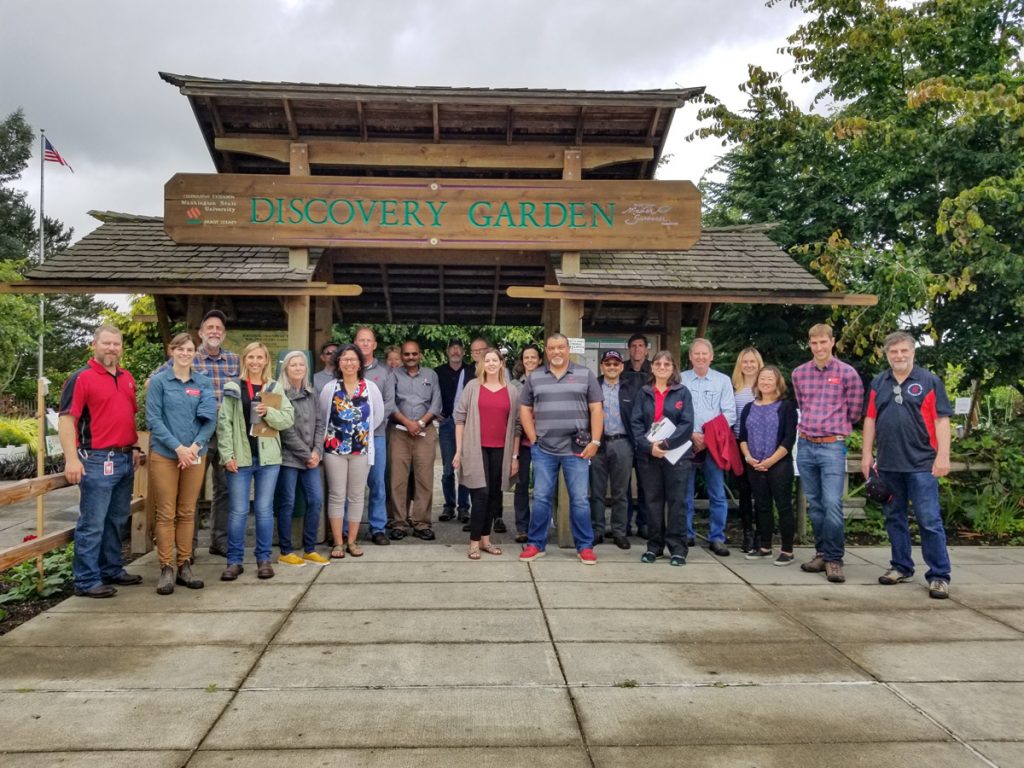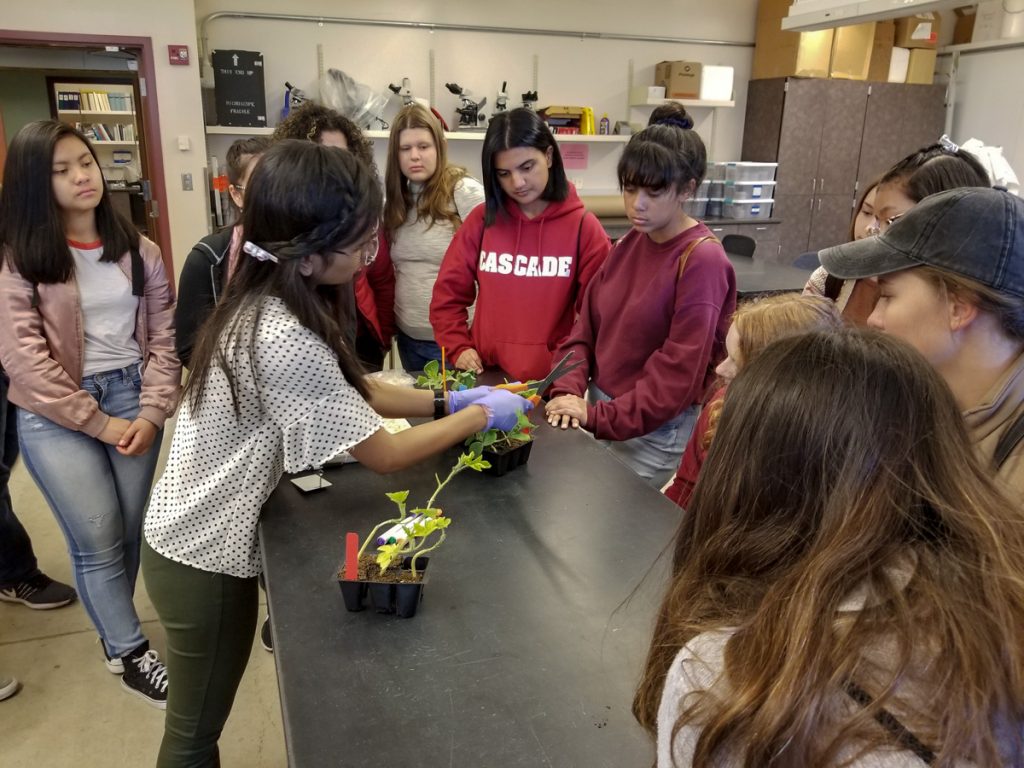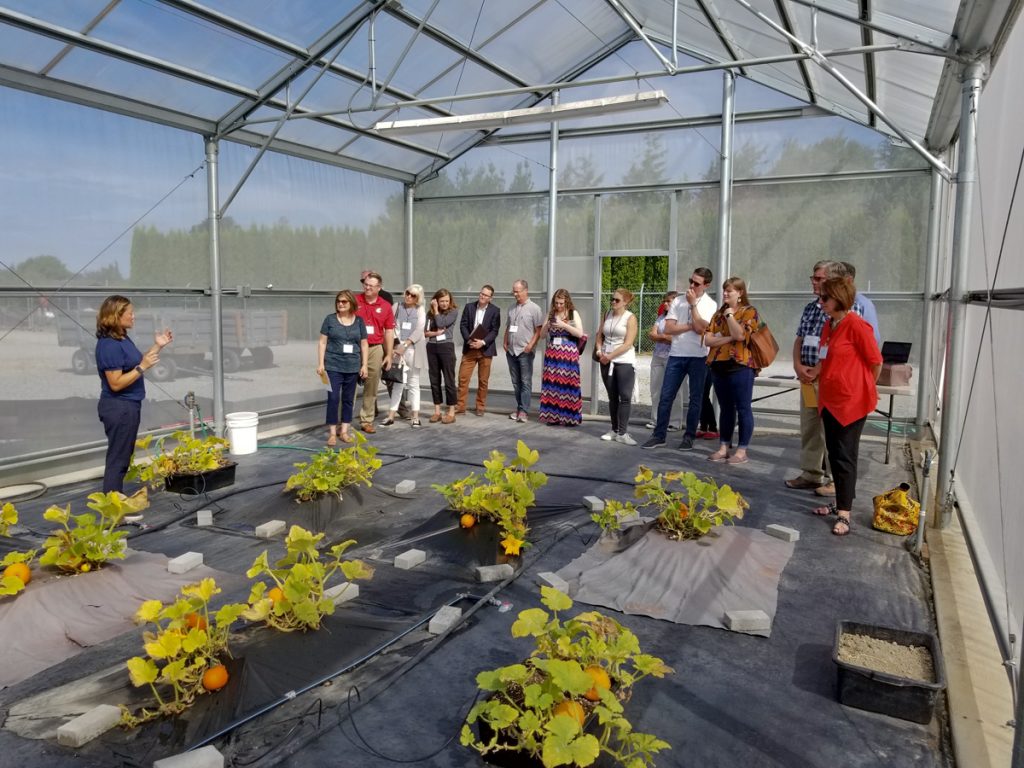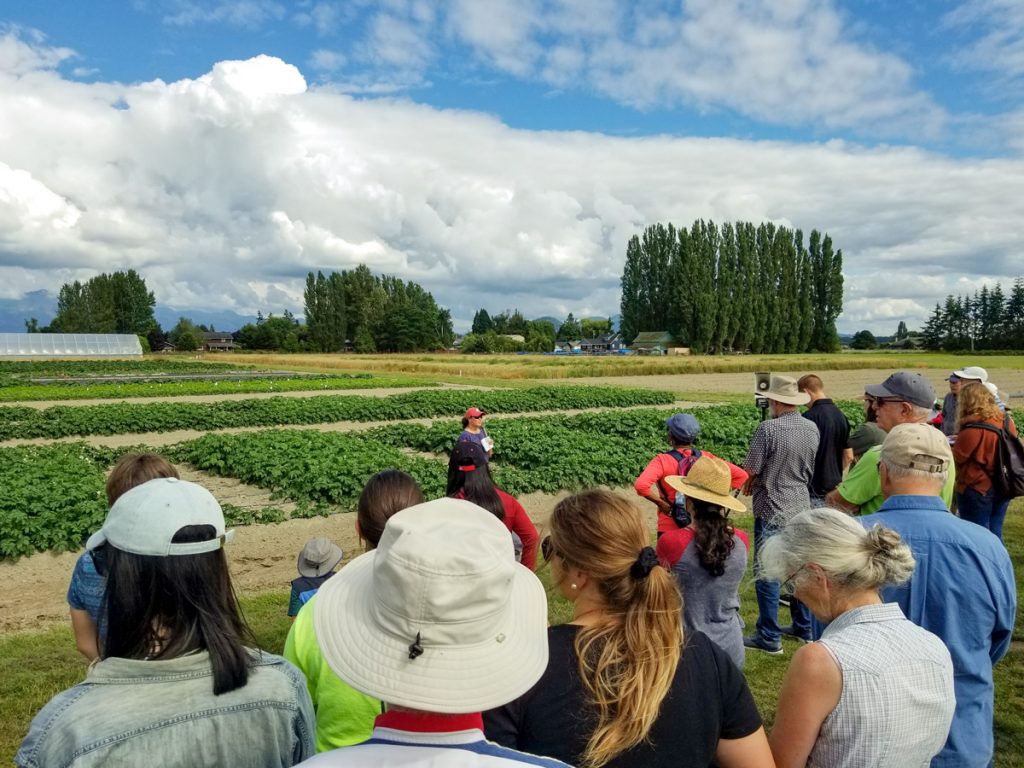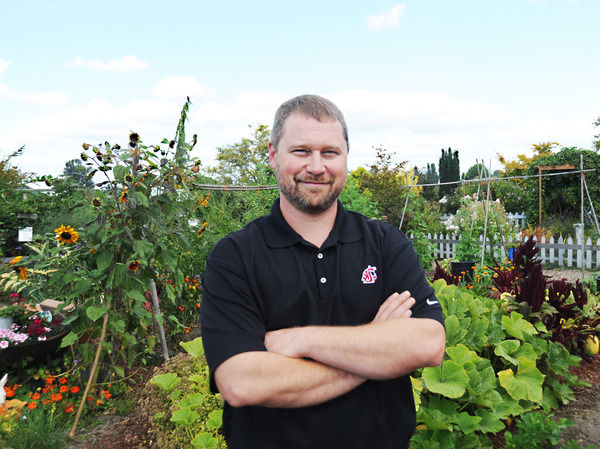
Director’s Message
I have some great news to share. Thanks to significant funding from Skagit County and a private donor, Phase 1 of our new Plant Growth Facility is fully funded and construction will begin soon. This project is the top funding priority for the Center as it will have broad benefit to all of our existing programs and will facilitate expansion of future programs. High quality plant growth facilities are our #1 need as the importance of controlled atmosphere conditions for conducting plant science research continues to become a more important aspect of agricultural research. 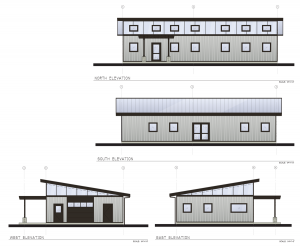 Phase 1 is the “head house” and will contain “dirty lab” working space, desk space, and space for the HVAC and control systems necessary to operate Phase 2 of the project (the greenhouses). The head house will be placed near the entrance parking lot and will integrate with the front of the main facility. Fundraising for Phase 2 has begun as well, so if you are interested in contributing please contact me.
Phase 1 is the “head house” and will contain “dirty lab” working space, desk space, and space for the HVAC and control systems necessary to operate Phase 2 of the project (the greenhouses). The head house will be placed near the entrance parking lot and will integrate with the front of the main facility. Fundraising for Phase 2 has begun as well, so if you are interested in contributing please contact me.
We’re going to need that Plant Growth Facility expansion soon because the Dean and Provost have authorized the hire of a new faculty position at NWREC in Plant Pathology during this Academic Year! This position is a hybrid position focused on potato and berry production systems. The Washington State Potato Commission and the Washington Blueberry Commission joined together to contribute significant funding toward the establishment of a new faculty position located here in Mount Vernon. A search committee is being assembled by the Department of Plant Pathology and we hope to launch the search in a few months.
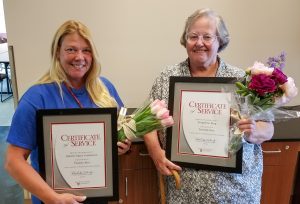
One of my favorite things to do as a leader is honor the hard-working staff who make their careers supporting research programs and stakeholders. The technical staff are essential for making our programs, faculty, and students successful. Many of you who are engaged in research coming from NWREC programs know these staff members well and in many cases you interact directly with them in the same way you do with faculty members. We always do our best to informally celebrate and appreciate our great staff, but one of the formal opportunities to honor and acknowledge their service is through the University’s Length of Service Awards. This summer, I was able to present 25-year Service Awards to Babette Gundersen and Jackie King. The reality is that both Babette and Jackie have been working at NWREC for much longer than 25 years. Like many technical staff, Babette and Jackie both began working here as part-time hourly workers long before their “official” WSU appointments began. Congrats to Babette and Jackie and thank you (and all of our technical staff) for your contributions to research.
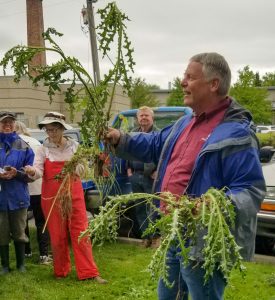 NWREC’s weed scientist (no, not that weed ?), Tim Miller, presented his final “weed walk” talk as a WSU faculty member earlier this summer on the day we helped him celebrate his retirement. Everyone who has interacted with Tim over the years or heard him give a talk appreciates his great sense of humor and his masterful ability to hold the attention of groups large and small as he talks about his favorite subject… weeds. Tim was actually the first NWREC faculty member that I met 16 years ago when I started at WSU. I don’t remember where or when it was, but I had to present immediately following him. I was nervous enough, but I recall thinking that there was no way I could entertain a crowd as well as Tim did. And, I still can’t.
NWREC’s weed scientist (no, not that weed ?), Tim Miller, presented his final “weed walk” talk as a WSU faculty member earlier this summer on the day we helped him celebrate his retirement. Everyone who has interacted with Tim over the years or heard him give a talk appreciates his great sense of humor and his masterful ability to hold the attention of groups large and small as he talks about his favorite subject… weeds. Tim was actually the first NWREC faculty member that I met 16 years ago when I started at WSU. I don’t remember where or when it was, but I had to present immediately following him. I was nervous enough, but I recall thinking that there was no way I could entertain a crowd as well as Tim did. And, I still can’t.
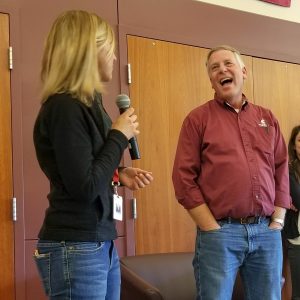 I think it is fair for me to speak on behalf of the NWREC faculty. We will dearly miss Tim. He has a way of making stressful situations less stressful, and he certainly makes everyone feel welcome and part of the team. Tim was granted Emeritus status so that he could finish up some research projects. So, even though he retired in June he still keeps showing up to work. Every time I see him I invite him to come back to faculty meetings—but he seems to have a new excuse for why he won’t be here on those days. ?
I think it is fair for me to speak on behalf of the NWREC faculty. We will dearly miss Tim. He has a way of making stressful situations less stressful, and he certainly makes everyone feel welcome and part of the team. Tim was granted Emeritus status so that he could finish up some research projects. So, even though he retired in June he still keeps showing up to work. Every time I see him I invite him to come back to faculty meetings—but he seems to have a new excuse for why he won’t be here on those days. ?
I had the opportunity early this summer to participate on a panel focused on Engagement at WSU’s Land Grant Symposium that President Schulz sponsored as part of the launch of the process for establishing the next WSU Strategic Plan. The Symposium was headlined by Ohio State University faculty member Stephen Gavazzi, co-author of the book Land Grant Universities for the Future: Higher Education for the Public Good. Gavazzi’s book (co-authored by Gordon Gee) covers the history, purpose, vulnerabilities, opportunities, and need for revitalizing the Land Grant mission in the 21st Century. I think I was invited to the panel because of the pivotal role that WSU’s Research & Extension Centers play in engaging the public (e.g. industry, communities, and the general public) in the other two key missional aspects of the University: discovery and instruction. There were two take-home messages for me from the Symposium:
- WSU faculty are committed to the tri-part Land Grant mission (discovery, instruction, and engagement). Over 550 people participated in the Symposium—more than 10 times the participation Gavazzi had experienced at any other University prior to WSU.
- The Land Grant mission is core to the strategy of University and College Leadership. Throughout the Symposium, I kept thinking about something NWREC Stakeholder Extraordinaire John Roozen frequently says. “The Land Grant University may be dying everywhere else, but it’s not dying at WSU, and it’s certainly not dying at WSU Mount Vernon.”
As you read through this newsletter, think about how WSU NWREC exemplifies the Land Grant mission, and let us know if you have other ideas how we can engage the Northwest Washington Community. We are WSU. We are #LandGrantFierce.
Go Cougs!
Chad

AWN Field Meteorologist joins NWREC
Mount Vernon is pleased to welcome new AgWeatherNet meteorologist Jon Contezac. Learn about Jon and the AgWeatherNet expansion from CAHNRS News.
http://news.cahnrs.wsu.edu/article/agweathernet-expands-presence-in-northwest-washington/
NWREC Hosts Guests
I just finished my first four-year term as NWREC Director. Time flies. The one NWREC phenomenon that still amazes me is the frequency of guest visits to the Center. These guest visits range from the daily stream of members of the public stopping in to “check out the lobby” or bring a plant sample, area farmers and industry staff coming by to visit a faculty member of technician, area K-20 student groups coming to learn about science and agriculture, and numerous visiting scientists, industry delegations, and VIP’s. Just today, as I write this article, we had two independent [last minute] visits from visiting scientists (Louisiana and Kazakhstan) and at least 10 members of the public stop into visit the front office that I noticed, and likely many times that stopped into the gardens.
Here are a few additional “guest visitors” who stopped into NWREC in the past few months…
WSU President and First Lady Kirk and Noel Schulz
President Kirk and Noel Schulz dropped in for a visit to NWREC in May on their way to the WSU Foundation Trustees Retreat. Kirk and Noel spent about five hours on site, visiting with graduate students in the lab, greenhouse, and field; having lunch and conversation with faculty; and a beautiful guided tour of the Discovery Garden hosted by Master Gardener Deborah Smeltzer. For all of you who are Master Gardeners, the first thing Kirk said when he arrived was “When do we get to tour the garden?”. Kirk and Noel’s visit was fantastic, and a good opportunity for the students to share their passion for research. Also, for anyone who is on Twitter, have you noticed that Noel is nearly always the first one to like and share any information about the great things NWREC faculty, staff, and students do?
CAHNRS Dean André Wright
When André Wright was hired as Dean of CAHNRS, he made it very clear he wanted to be “the Dean of the whole of CAHNRS”. Just based on his travel schedule, I think he’s making good on his commitment to doing so. We have definitely seen him at the R&E Centers a lot since he started last summer. André also made it clear he wanted others on the CAHNRS Leadership Team to be visiting faculty and students at the R&E Centers, so he instituted a quarterly REC visit for Chairs & Directors that have faculty or students at the Centers. We hosted CAHNRS Leadership for a day of meetings with faculty, students, staff, and stakeholders on July 11th, prior to the Annual Field Day. During the visit, Associate Deans and Department Chairs / School Directors learned more about NWREC programs and vision, received an in depth tour of the facilities, had lunch with faculty, students, and staff from their departments, and had a good discussion with NWREC stakeholders. Perhaps the most interesting [and surprising] comment I heard during this visit came from the leader of our Tree Fruit R&E Center at Wenatchee, who said that “those who work in tree fruit are envious of the Center-stakeholder relationship that is exemplified at Mount Vernon because it is the standard to which we all aspire.”
Student Groups
We host a lot of student visitors at NWREC. We often get inundated with requests from K-12 (and even undergraduate groups) in the late spring as teachers are looking for “field trip” opportunities for their students to get hands-on experiences in science and agriculture. 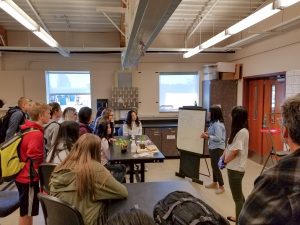 It’s a great opportunity for our graduate students to inspire the next generation of scientists. This spring we hosted several student groups, including several high school classes from the Everett School District and a collegiate group from the Au Sable Pacific Rim campus. It always seems like Entomology comes out as the favorite program for visiting students—I think it’s because both the bugs and our entomologists are just extremely charismatic. The Au Sable group even used the bug vacuum!
It’s a great opportunity for our graduate students to inspire the next generation of scientists. This spring we hosted several student groups, including several high school classes from the Everett School District and a collegiate group from the Au Sable Pacific Rim campus. It always seems like Entomology comes out as the favorite program for visiting students—I think it’s because both the bugs and our entomologists are just extremely charismatic. The Au Sable group even used the bug vacuum!
WSU Congressional and Legislative Staff Tour
The last major visit we had this summer was the annual WSU Congressional and Legislative Staff Tour in August. Staff from all of the Federal elected delegation and many of the state legislative committee staff as well as additional guests participated in a three-day bus tour from SeaTac to Pullman that stopped at both the Mount Vernon and Wenatchee R&E Centers. I understand this was the first time that this tour focused completely on agricultural sciences and also the first time to visit two R&E Centers on the same trip. NWREC was the first stop, with the participants splitting time at the Center and the Bread Lab. During the stop in Mount Vernon, participants learned about vegetable seed, soil health, vegetable crops, biodegradable plastics in agriculture, hard cider, local grains, and building a viable regional ag economy. They also observed direct evidence of the importance of the USDA Specialty Crop Research Initiative and WSDA Specialty Crop Block Grant programs.
2019 NWREC Field Day
The WSU Mount Vernon NWREC Annual Field Day was held on Thursday, July 11 this year with a slightly different format. The goal was to create opportunities for more in depth discussions with “hands-on” experiences for participants.
Faculty and graduate students hosted a 90 minute tour of some of the nearly 150 acres of active research plots at the Center and followed up with an hour long research exhibit with booths with additional demonstrations and research posters. The focus of the field day is to present current research projects and share how work at the Center impacts growers, consumers, agricultural businesses and local economies throughout the region.
This year’s featured talks during the tour were focused on soil health, vegetable seed production and potato disease management. Additional presentations included cider fermentation, vegetable grafting, weed management, plant insect pest management and small fruit production. Faculty and graduate students were available throughout the event for additional discussions on their research.
Participants enjoyed a locally prepared barbeque and were able to meet Dr. André Wright, WSU Dean of the College of Agricultural, Human, and Natural Resources Sciences (CAHNRS), and several other CAHNRS administrators, including Associate Deans, Department Chairs, and Research & Extension Center Directors. Earlier in the day, CAHNRS leadership had convened at NWREC for it’s quarterly R&E Center administrative meeting.
The Field Day was the best attended in years and there were a lot of conversations occurring throughout the event. Make plans to join us next summer on the second Thursday in July (July 9, 2020).
NWREC in the Media
A number of NWREC faculty and programs have been featured in the media in the past few months. More coverage of the great people, great ideas and great work happening at NWREC!
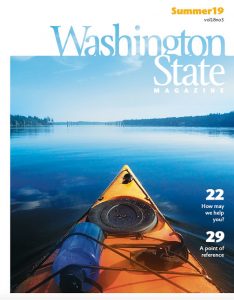
Vegetable Seed Pathology
The Vegetable Seed Pathology program was featured in an article on Spinach published in the Summer 2019 issue of Washington State Magazine.
And Women in Ag Science has published a profile of Dr. Lindsey du Toit as she begins her term as president of the American Phytopathological Society (APS).
The Bread Lab
The Bread Lab was the focus of a King 5 News feature in May titled A wheat revolution is growing in western Washington.
Vegetable Horticulture
Two graduate students from the Vegetable Horticulture program were featured in a Skagit Valley Herald article titled “Grad students bring international perspective to local agriculture” (May 2019).
